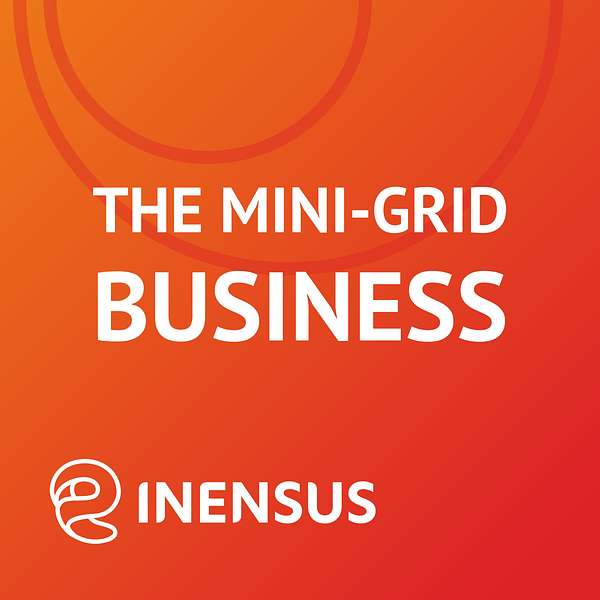
The Mini-Grid Business
Welcome to "The Mini-Grid Business," hosted by Nico Peterschmidt, CEO of the consultancy company INENSUS. With nearly two decades of experience working with over 100 mini-grid companies across Africa and Asia, INENSUS created a podcast, which becomes your gateway to the world of rural electrification through mini-grids.
In each episode, Nico and his guests – seasoned experts who have navigated the complexities of the mini-grid sector – offer candid insights based on real-life experiences. Whether they're individuals who have overcome significant challenges, policy makers shaping the sector’s frameworks and funding structures, or visionaries crafting the future of mini-grids, they all have unique perspectives to share.
From exploring successful pathways to profitability, to dissecting the reasons behind a company's struggles, "The Mini-Grid Business" delves deep into both theory and practice. It questions the accepted status quo of the mini-grid sector, aiming to unearth new perspectives or expose misunderstandings that need addressing.
This is a space for thought-provoking discussions, innovative ideas, and invaluable knowledge exchange.
Whether you are an industry veteran, a newcomer, or simply curious about the transformative potential of mini-grids, this podcast invites you to challenge your thinking, learn from others, and engage with a community that’s shaping a brighter, more sustainable future.
So, tune in, and enjoy "The Mini-Grid Business"!
LinkedIn: https://www.linkedin.com/company/inensus-gmbh/mycompany/
Twitter: INENSUS (@INENSUSgmbh) / X (twitter.com)
Visit www.inensus.com for more info.
The Mini-Grid Business
The mini-grid monopoly – Gift or curse
In this episode we are thrilled to host Grace Perkins, Chief Growth Officer of the African Mini-Grid Developers Association (AMDA), and Samuel Bunnya, Project Coordinator of the African Forum for Utility Regulators (AFUR). Together with the podcast's host Nico Peterschmidt, they unpack how the natural monopoly of a mini-grid can be steered by regulation that supports positive and collaborative effects while minimizing exploitation of power on all sides of this mini-monopoly.
The fluid roles and responsibilities of various sector stakeholders emerge as a pivotal theme, with regulators facing the challenge of encapsulating these in concrete regulations. An intriguing point of debate is the potential for regulators to take on more active roles, even influencing subsidy decisions for specific projects.
A core revelation of our discussion is the disconnect between current electrification plans and mini-grid regulations. Synchronizing these elements could pave the way for nations striving to fast-track mini-grid electrification.
Reflecting on the sector's trajectory, it's clear that mini-grids, with their consistent provision of reliable electricity, have built a foundation of trust. This trust facilitates the development of detailed regulations, attracting a diverse array of industry participants and setting the stage for accelerated industry growth.
Join us as we navigate the complexities and potentials of the mini-grid regulatory landscape, moderating stakeholders in the mini-grid mini-monopoly.
LinkedIn: https://www.linkedin.com/company/inensus-gmbh/mycompany/
Visit www.inensus.com for more info.
